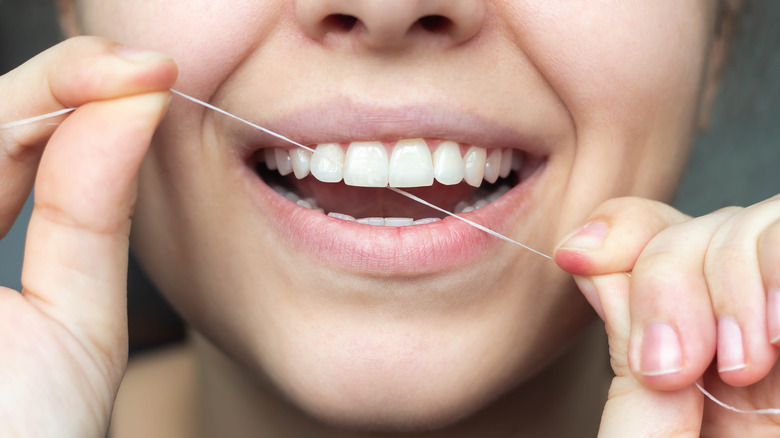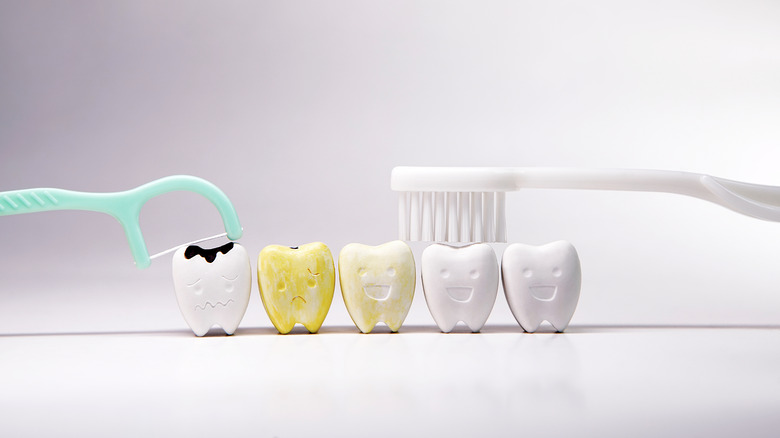Do You Really Need To Floss Daily?
Among the tasks that Americans love to put off and shove to the bottom of our to-do lists — like cleaning the oven and organizing the attic — flossing our teeth is right up there with the worst of them. We dislike flossing so much that almost 30% of us never do it, and another 37% don't floss daily, as we should (via U.S. News & World Report).
To be fair, the government threw a wrench into long-standing protocol when, in its 2015-2020 version of the Dietary Guidelines for Americans, it removed the recommendation for daily flossing (via SELF). But that change didn't reflect any difference in the actual benefits that flossing offers. Instead, the recommendation was dropped simply because existing research didn't provide enough conclusive data to meet the standards for "proof" of benefit (via Harvard Health). The change in government recommendation also didn't sway the view of dentists, most of whom still wholeheartedly recommend flossing daily (via U.S. News & World Report).
Floss can reach areas that brushing alone can't
Timothy Chase, DMD, a New York-based cosmetic dentist and practicing partner of SmilesNY, told Well+Good, "Brushing alone doesn't go between the teeth or under the gum, where food particles get stuck. If you don't floss, you leave food particles between the teeth and under the gums that can cause cavities, gum disease, and bad breath." Left alone, bacteria that multiply on the surface of teeth can turn into plaque, which hardens into tartar, which can wear away at gums, teeth, and bone over time (via U.S. News & World Report).
Flossing is an important part of good oral hygiene but only if it's done properly. Don't rush, use plenty of floss, and gently "hug" each tooth instead of just moving the floss straight up and down (via Well+Good). Not only will your smile thank you, but your dentist just might, too. Katera Hopkins, DMD, at the University of Vermont Medical Center, told Well+Good, "Any clinical dentist or hygienist is immediately able to detect a mouth that has been routinely flossed versus one that has not."


